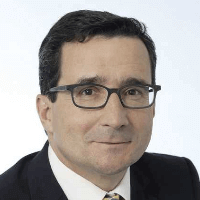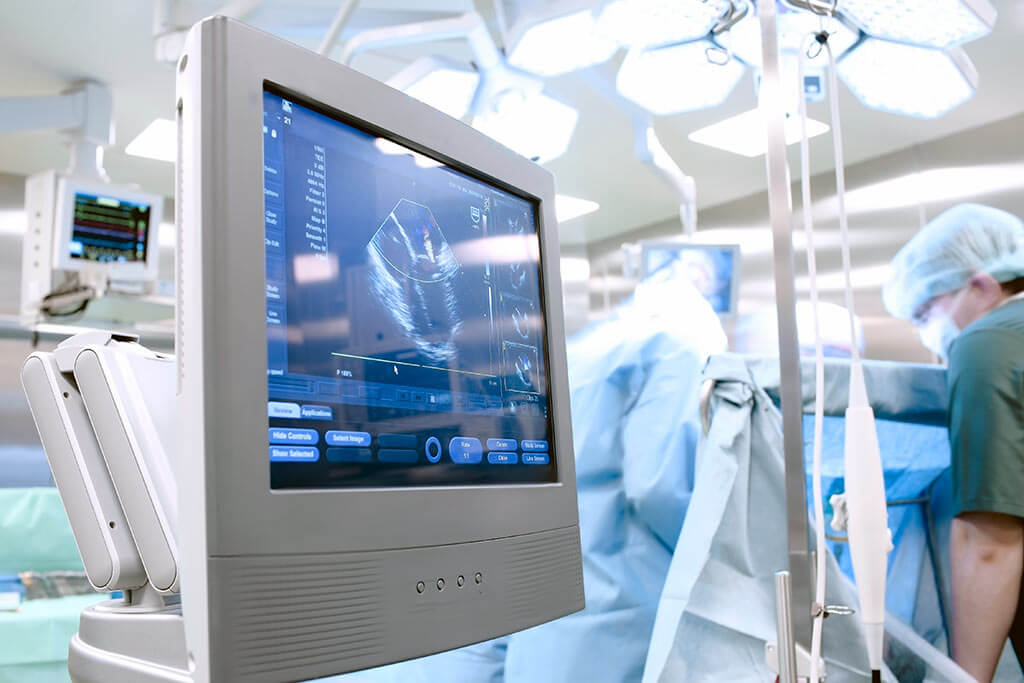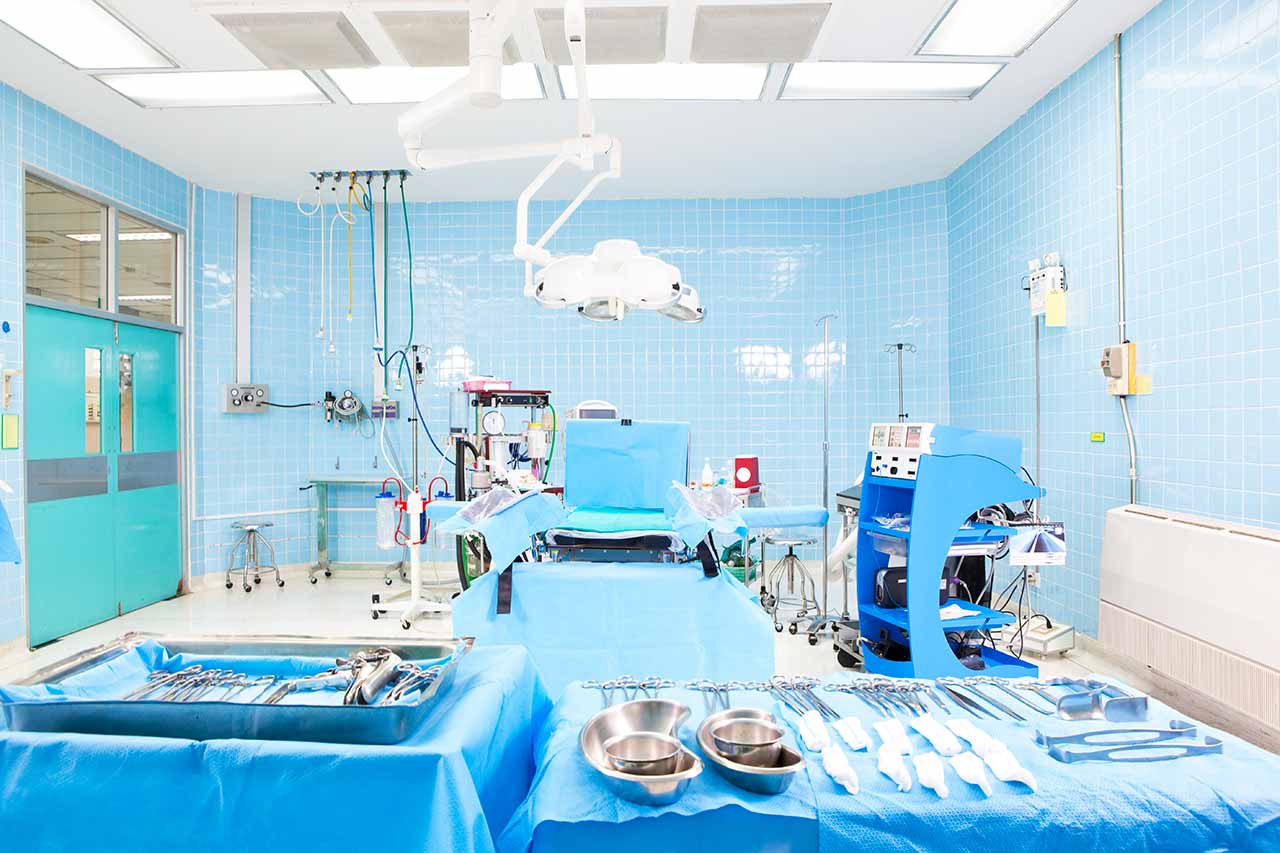
The program includes:
- Initial presentation in the clinic
- clinical history taking
- review of medical records
- physical examination
- laboratory tests:
- complete blood count
- biochemical analysis of blood
- inflammation indicators (CRP, ESR)
- indicators of blood coagulation
- immune status
- rheumatoid factor (RF)
- x-ray examination of joints
- resting ECG
- echocardiography
- nursing services
- consultation of related specialists
- consultation of the chief physician and all leading experts
- development of individual treatment plan
- written statement
Required documents
- Medical records
Service
You may also book:
 BookingHealth Price from:
BookingHealth Price from:
About the department
The Department of Nephrology and Rheumatology at the Hospital Harlaching Munich offers the full range of diagnostic and therapeutic services in the fields of its competence. The department's medical team specializes in the treatment of acute and chronic kidney diseases, arterial hypertension, as well as systemic rheumatic diseases. The department's doctors also specialize in the treatment of concomitant diseases of this profile – diabetes mellitus and occlusive peripheral arterial disease. The department is certified by the German Society of Nephrology as a specialized medical facility for the treatment of kidney diseases, and therefore it has all the modern therapeutic techniques for the effective treatment of nephrological diseases. The department has a progressive Dialysis Unit, which offers all types of renal replacement therapy for the patients with kidney failure. The department's doctors work in accordance with the current clinical protocols, so the patients are guaranteed high quality and safety of medical care. The department is headed by Prof. Dr. med. Clemens Cohen.
The department enjoys an excellent reputation in the treatment of kidney diseases of any severity. Of particular interest is the treatment of acute and chronic kidney failure, systemic lupus erythematosus, vasculitis, polycystic kidney disease, glomerulonephritis, kidney failure caused by diabetes mellitus and arterial hypertension. In addition, the department cooperates with departments specializing in the treatment of rare kidney pathologies. Thus, the department's medical team has a unique experience in the treatment of rare kidney diseases. To assess the condition of the kidneys and their function, the department's doctors use various diagnostic tests: comprehensive laboratory diagnostics, classical ultrasound scanning and duplex scanning (also with contrast enhancement), ultrasound-guided biopsy, etc. In most cases, nephrologists manage to achieve a good result using drug treatment. However, if the patient is diagnosed with acute kidney failure or end-stage renal disease, then dialysis (renal replacement therapy) is the only effective treatment method. Dialysis is carried out in a specially equipped unit. The department's doctors cooperate closely with specialists in the field of surgery and interventional radiology, who perform the necessary therapeutic manipulations to form dialysis access. The key focus in clinical practice is on peritoneal dialysis.
It should be noted that the department's medical team specializes only in conservative treatment of kidney diseases. If the patient requires surgical treatment, the doctors from the Department of Urology are involved in the therapeutic process. They have in their arsenal many classic and sparing laparoscopic and endoscopic surgical techniques. In addition, the department's nephrologists jointly with gynecologists provide competent medical care to pregnant women with kidney diseases and arterial hypertension. The range of medical services in the field of nephrology is complemented by high quality patient care before and after kidney transplantation.
Since kidney disease is a common cause of high blood pressure, the department's doctors also provide both diagnostics and treatment of hypertension. The specialists prescribe modern drugs to the patient to normalize blood pressure and improve their well-being. In addition, the department's doctors successfully cope with resistant arterial hypertension.
In the field of rheumatology, the doctors offer comprehensive diagnostics and treatment of autoimmune diseases, which can provoke severe lesions of the kidneys and irreversible changes in their work without timely treatment. The therapeutic options in this field include drug therapy using biological agents, as well as extracorporeal procedures – immunoadsorption and plasmapheresis.
The department specializes in the treatment of the following diseases:
- Acute and chronic kidney failure
- Kidney failure caused by diabetes mellitus
- Polycystic kidney disease
- Rare kidney diseases
- Systemic lupus erythematosus
- Vasculitis
- Glomerulonephritis
- Arterial hypertension, including resistant one
- Kidney disease and hypertension in pregnant women
- Systemic rheumatic diseases (autoimmune diseases)
- Other diseases
The department's range of diagnostic and therapeutic services includes:
- Diagnostic tests
- Laboratory tests
- Classic ultrasound examinations, including contrast-enhanced ones
- Duplex scanning, including contrast-enhanced one
- Ultrasound-guided biopsy
- Therapeutic procedures
- Drug therapy
- Dialysis (renal replacement therapy) – special focus on peritoneal dialysis
- Immunadsorption
- Plasmapheresis
- Care for patients before and after kidney transplantation
- Other diagnostic and therapeutic options
Curriculum vitae
Prof. Dr. med. Clemens Cohen received his medical education at the Universities of Heidelberg and Mannheim. Doctoral degree was followed by research internships in the US and UK. The specialist then worked for 10 years at the University Hospital of Ludwig Maximilian University of Munich. During this time, Prof. Cohen completed his board certification in Internal Medicine and also became a specialist in Nephrology and Rheumatology. In 2007, the doctor joined the Department of Nephrology at the University Hospital Zurich, and also became a Group Leader at the Institute of Physiology at the University of Zurich. In 2012, Prof. Clemens Cohen became the Head of the Department of Nephrology and Rheumatology at the Hospital Harlaching Munich. For many years, the specialist has been heading the European Renal cDNA Bank, Biobank, and also leads a multicenter research on the pathomechanisms of acquired kidney diseases. The doctor is also a member of the EURenOmics consortium – a worldwide research consortium on rare kidney diseases.
Prof. Cohen's clinical interests include the treatment of kidney diseases, hypertension and autoimmune diseases. The specialist has vast experience in the treatment of glomerulonephritis, systemic lupus erythematosus, vasculitis and diabetes mellitus.
Photo of the doctor: (c) München Klinik Harlaching
About hospital
According to the prestigious Focus magazine, the Hospital Harlaching Munich ranks among the top 20 medical centers in Bavaria, and is also one of the 100 best hospitals in Germany!
The medical complex provides top-class medical care, which meets modern European standards. The medical facility is an Academic Hospital of the Ludwig Maximilian University of Munich, thanks to which it has access to the very latest clinical achievements. The hospital is proud of its large bed capacity, which accounts for more than 700 beds. The doctors of the medical complex annually provide treatment to over 79,000 patients both on an inpatient and outpatient basis. The work of the hospital's medical team is based on an individual approach to each patient, since each patient and his clinical case are unique. The specialists develop individual medical programs, which allow them to achieve complete cure even in particularly complex clinical cases.
The hospital includes 17 specialized departments and many narrowly focused centers, including the Trauma Center, Breast Center, Gynecologic Cancer Center, Level I Perinatal Center, etc. The priority clinical activities of the medical facility include traumatology, neurology, gynecology and obstetrics, oncology, urology, pediatric and adolescent medicine. In addition, the doctors of the medical complex have long experience in the treatment of diseases of the cardiovascular system, kidneys and urinary tract, diseases of the gastrointestinal tract and lungs.
The hospital has been awarded the prestigious DIN EN ISO 9001:2015 certificate, which confirms the excellent quality of medical services and high patient satisfaction with medical care. The successful clinical activities of the hospital are also awarded with certificates from the German Cancer Society, the German Cardiac Society, the German Stroke Society, the German Trauma Society, the German Hernia Society and other specialized medical associations.
The patients of the hospital benefit from medical care by leading doctors in Germany with rich practical experience and excellent qualifications. The specialists devote enough time to personal communication with patients, strive to establish trust with them and do everything possible to ensure not only a successful treatment outcome, but also a pleasant stay in the hospital.
Photo: (с) depositphotos
Accommodation in hospital
Patients rooms
The patients of the Hospital Harlaching Munich live in comfortable single and double rooms with light colors. Each patient room has an ensuite bathroom with shower and toilet. The standard patient room furnishings include an automatically adjustable bed, a bedside table, a wardrobe, a table and chairs for receiving visitors. The bed has a built-in modern multimedia system with the help of which the patient can control the TV and radio. In addition, the multimedia system can be used to make telephone calls. Wi-Fi access is also available in the hospital. There is a ban on smoking in the hospital.
The patients can also live in enhanced comfort rooms. These patient rooms have additional toiletries, towels, hairdryer, safe, mini-fridge and upholstered furniture.
The hospital has a library with a wide selection of books for every taste, including audio books, magazines, DVDs and CDs.
The hospital also has a cozy cafe where the patients can have a tasty snack, enjoy a cup of aromatic coffee or hot tea with dessert.
Meals and Menus
The patient and the accompanying person are offered tasty and healthy three meals a day. The diet is quite varied. The restaurant of the hospital is certified in accordance with the DIN ISO 22000: 2005 quality standards, so the patients can be sure that when cooking the chefs use only the freshest and highest quality products.
If you are on a specific diet for some reason, you will be offered an individual menu. Please inform the medical staff about your dietary preferences prior to the treatment.
Further details
Standard rooms include:
Religion
The religious services are available upon request.
Accompanying person
During the inpatient program, the accompanying person can live with the patient in a patient room or a hotel of his choice. Our managers will help you choose the most suitable option.
Hotel
During the outpatient program, the patient can stay at the hotel of his choice. Our managers will help you choose the most suitable option.




